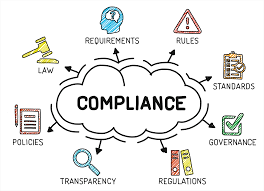The Future of Compliance in UK Accounting: Why It’s Time to Embrace Technology
In a London accounting firm, Sarah, a compliance officer, faces overwhelming paperwork due to manual compliance checks which are time-consuming and prone to error.

Sarah (an experienced compliance officer) was buried in paperwork when a phone call disrupted her thoughts. A new client’s background check didn’t add up. She found herself frantically cross-referencing multiple databases. She wanted to ensure nothing slipped through the cracks.
For Sarah and many accountants across the UK, this is a daily reality. Manual compliance checks from AML, KYC and CDD are time-consuming, error-prone, and increasingly inadequate. As the regulatory landscape becomes more complex, it’s clear: firms must modernise their compliance processes.
The Growing Compliance Burden for UK Accounting Firms
Compliance isn’t just a hassle, it’s a growing burden. Research shows that over 80% of accountants in the UK feel overwhelmed by the pressure to comply with complex regulations. AML (Anti-Money Laundering) checks, KYC (Know Your Customer) verifications, and CDD (Customer Due Diligence) are now essential tasks. However, managing them manually is increasingly difficult.
Accounting firms are under pressure to meet high compliance standards while maintaining efficiency. Failure to stay on top of regulations can lead to heavy fines, legal repercussions, and loss of client trust.
Why Compliance Technology Is the Key to Future-Proofing Your Firm
The situation Sarah faced is far from unique. Many accounting firms in the UK still rely on outdated, manual systems to handle compliance tasks. But with the growing complexity of regulations, this approach is no longer sustainable.
Compliance technology, powered by AI and machine learning, offers a far more efficient solution. These tools automatically track, verify, and update client information. They conduct background checks and monitor transactions in real-time. This process ensures compliance with regulatory requirements.
AI-driven tools save time, reduce human error, and enhance overall accuracy. Accounting firms can rely on technology. This removes the hours previously spent manually checking client details. Technology streamlines these processes. It ensures faster and more reliable outcomes.
The Risk of Not Upgrading Your Compliance Systems
The cost of not upgrading your compliance systems is high. Not only are firms at risk of hefty fines and legal consequences, but there’s also the damage to their reputation. Clients expect their financial data to be handled securely. They want assurance that firms are staying ahead of changing regulations.
If your firm is still relying on manual processes, you risk falling behind competitors. These competitors have already implemented automated compliance systems. These firms are faster and more efficient in their compliance efforts. They are also more accurate, giving them a distinct edge in the market.
The Benefits of Automated Compliance Solutions
Let’s revisit Sarah’s firm. After switching to automated compliance tools, the firm saw immediate improvements. What once took hours of manual checks was now completed in minutes, and with much greater accuracy.
The benefits were clear:
- Speed: Client onboarding and checks are completed much faster, allowing firms to move more efficiently.
- Accuracy: AI-powered tools reduce the risk of human error and ensure compliance tasks are handled thoroughly.
- Cost-efficiency: These systems scale with your firm, allowing you to grow without the need for additional hires or manual labour.
How Compliance Technology Helps UK Firms Stay Competitive
For UK accounting firms, adopting compliance technology is not just about meeting regulatory requirements, it’s a competitive advantage. Firms that use automated compliance systems can offer faster, more reliable services to clients. This builds trust and positions them as leaders in the industry.
By automating time-consuming compliance tasks, firms can focus more on delivering value to clients. They can also grow their businesses. Additionally, they stay ahead of evolving regulations.
Future-Proof Your Firm with Compliance Automation
Compliance technology is no longer a luxury; it’s a necessity for accounting firms in the UK. With AI-driven tools, firms can streamline their compliance processes, improve accuracy, and reduce the risk of regulatory breaches.
Now is the time to invest in compliance automation. This investment will future-proof your firm. It will also provide an exceptional experience to your clients.





